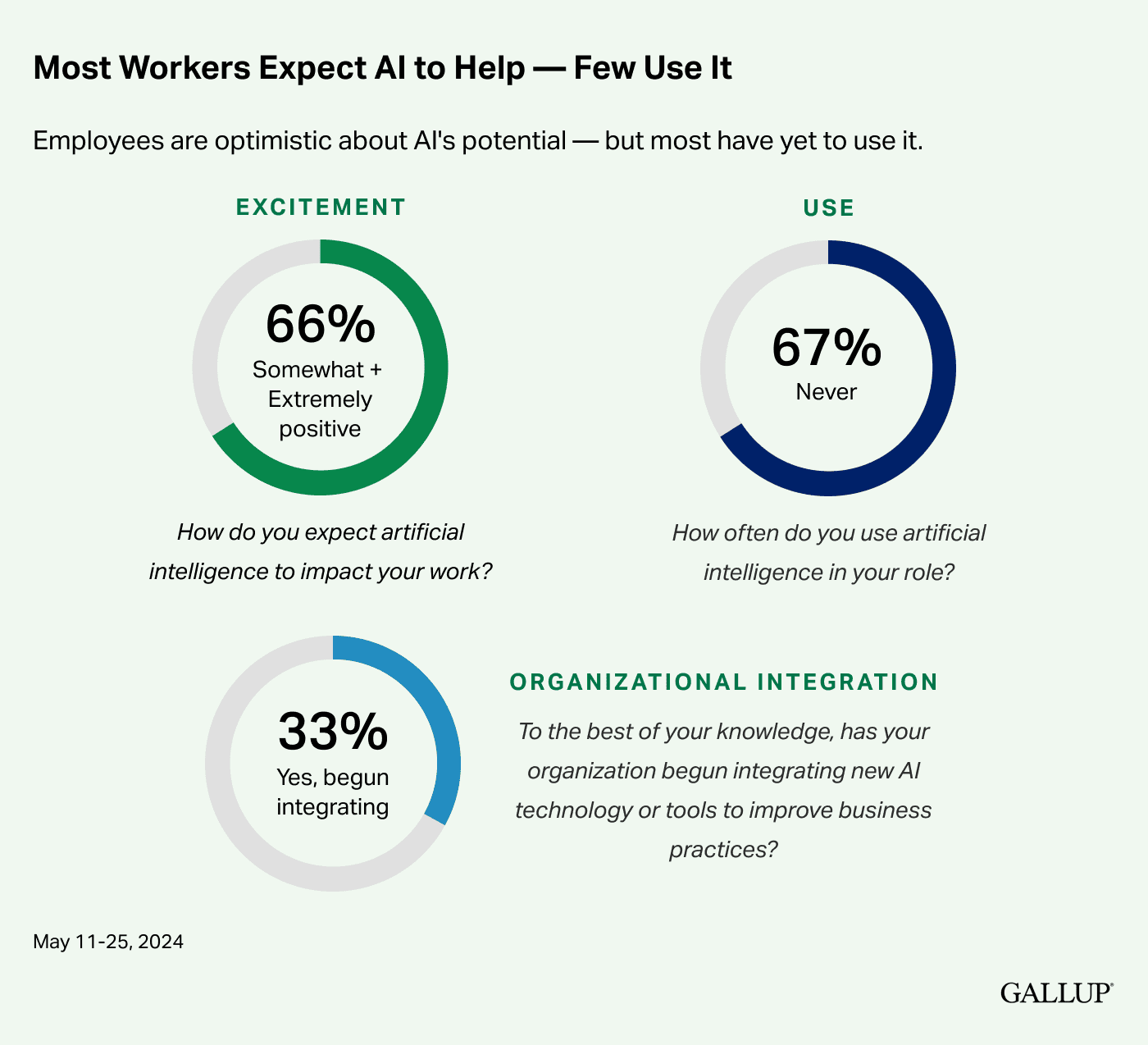The Importance of Human Support in AI Implementation
C-suite leaders are captivated by AI’s potential to boost productivity, from generating insights to automating routine tasks. However, numerous studies indicate that technology is most effective when it complements human effort, rather than replacing it. Decades of economic research confirm that significant productivity gains occur when new tools enhance workers’ skills, judgment, and creativity within supportive organizations.

“Awesome technology alone is not enough. What you really need is to update your business processes, reskill your workforce, and sometimes even change your business model and organization in a big way,” said Erik Brynjolfsson, a professor of economics and director of the Digital Economy Lab at Stanford University.
Why Human Support is Essential
AI excels at recognizing patterns and making predictions, but people provide context, intuition, and ethics. The most powerful results occur when each does what it does best. Recent research on generative AI demonstrates this in action. One experiment found that professionals given access to ChatGPT were 37% more productive on writing tasks, with the greatest benefits for less-experienced workers. The tool handled first drafts, freeing employees to focus on higher-value editing and idea development.
Instead of replacing workers, AI expanded their abilities and narrowed skill gaps. Employees also reported greater satisfaction as tedious work gave way to more engaging tasks. Other research has replicated this result in larger samples of workers in different settings. A 2021 study using Gallup data found that technology innovation had a positive effect on worker wellbeing, mainly for employees who said their boss created a trusting work environment.
Designing a Human-AI Future
Leaders should treat AI as a force multiplier for human ingenuity to unlock future products. Successful companies offer a guide: Invest in skills, training, and habits of continuous improvement. Organizations benefit when employees develop persistence and resilience. Research shows that workers in jobs requiring greater intellectual tenacity are better protected from major disruptions.
To elevate what people do best, leaders should:
- Redesign jobs and workflows to support human-AI collaboration
- Foster a culture of curiosity, making it clear that AI is there to help employees, not reduce staff
- Involve workers early in shaping AI tools to improve their work and the business overall
The success of any AI initiative depends on people, starting with whether employees feel that management creates a trusting work environment. AI can help with tasks and generate insights, but humans have a competitive edge in connecting with customers through empathy, applying creativity to shape and use AI-driven ideas, and developing future tasks.
Keep people at the center of your AI strategy. Learn more about Gallup’s people-first approach to AI adoption.


